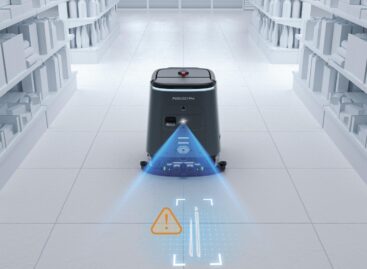Trademagazin > News and articles > Market News > You can cartelize with artificial intelligence, but it’s not worth it
You can cartelize with artificial intelligence, but it’s not worth it
🎧 Hallgasd a cikket:
Taking action against cartels remains a priority for the Hungarian and EU competition authorities. Companies will also need to pay attention to this area in 2026, warns the international law firm Baker McKenzie. Artificial intelligence-based algorithms represent new methods in illegal collusion between competitors, and their use may therefore come into the focus of the authorities.
 There have already been cases in which companies that cartelized using “classical” means used algorithms to secure their otherwise illegal cartel agreements and make them more effective. Although this is an aggravating factor and results in a higher fine, the cartel was not created by the algorithm, but by direct consultation between the parties.
There have already been cases in which companies that cartelized using “classical” means used algorithms to secure their otherwise illegal cartel agreements and make them more effective. Although this is an aggravating factor and results in a higher fine, the cartel was not created by the algorithm, but by direct consultation between the parties.According to the authorities, a cartel can also be created without direct communication between competitors, but rather by some algorithm – even using artificial intelligence. This may include databases containing and comparing different prices and fees, as well as applications that develop pricing strategies based on them – their use therefore poses a serious competition law risk. Not only the European Commission and EU competition law, but also many other authorities from the United States to Brazil to the United Kingdom have experience in this regard.
“Globally, in Europe and in Hungary, competition authorities are focusing on pricing algorithms and decision-making mechanisms driven by artificial intelligence. The intention of the legislators is clear: no cartels can be formed through algorithms in any way. We expect that related proceedings will also be expected in Hungary
– said Dr. Márton Horányi, international partner at Baker McKenzie and head of the Budapest competition law practice.
It is also possible that the authority will treat applications that are harmful to competition or disadvantageous to consumers not as cartels, but as unfair commercial practices. In this case, it is easier to initiate a case, and the size of the fines will already be comparable to those imposed in cartel cases. compete.”
How can an app form a cartel?
For example, the United States Department of Justice has filed a lawsuit against the software company Realpage, whose application called YieldStar collects competitively sensitive information about landlords’ portfolios – past and current rents and other rental conditions – and then uses this data set to make rental recommendations, not only for its own properties but also for all competitors. The purpose of the lawsuit is to examine whether the software restricts competition between landlords to the detriment of tenants.
This case raises suspicions of a so-called hub-and-spoke cartel, i.e. when the parties do not negotiate directly, but an intermediary shares information between competitors. The special thing about this case is that the hub is not a market participant or person, but the algorithm itself. However, the US competition authority has previously stated that in this sense the algorithm is no different from natural persons: collecting sensitive price information from competitors and then setting prices based on it can both violate competition law.
Accordingly, the use of pricing algorithms that operate using competitor data can be problematic – even if competitors do not see each other’s prices, only the software does. It can also be suspicious if several market participants use the same algorithm in order to apply the same prices.
“This does not mean that the use of software that collects price information is always illegal, but care must be taken to ensure that it actually complies with competition law rules. A company using such software cannot defend itself by saying that it was not aware of the operation of the application
– added dr. Márton Horányi.
The authorities often provide specific guidance on what aspects developers and those who use such software should pay attention to. The Singapore Competition Authority, for example, has created a tool that allows developers and users to audit the AI technology they use from a competition law perspective. By knowing the pricing software or its source code, the tool can be uniquely identified makes recommendations for managing risks.
Related news
Hungarian world first: AI calculator calculates how much a company will lose during the flu season and how much can be saved by using preventive technologies
🎧 Hallgasd a cikket: Lejátszás Szünet Folytatás Leállítás Nyelv: Auto…
Read more >Tuned to efficiency
🎧 Hallgasd a cikket: Lejátszás Szünet Folytatás Leállítás Nyelv: Auto…
Read more >PUDU CC1 Pro AI-based autonomous cleaning robot
🎧 Hallgasd a cikket: Lejátszás Szünet Folytatás Leállítás Nyelv: Auto…
Read more >
More related news >
Related news
No matter how much you save, food and gadgets always take the money
🎧 Hallgasd a cikket: Lejátszás Szünet Folytatás Leállítás Nyelv: Auto…
Read more >Historic price reduction at ALDI
🎧 Hallgasd a cikket: Lejátszás Szünet Folytatás Leállítás Nyelv: Auto…
Read more >








